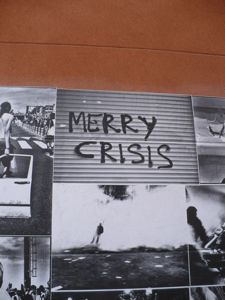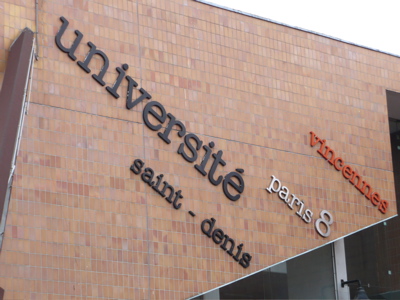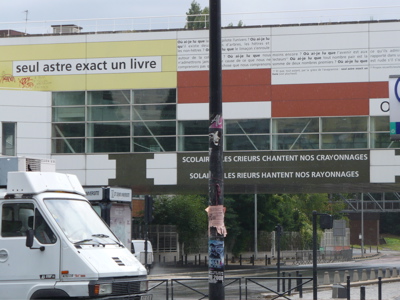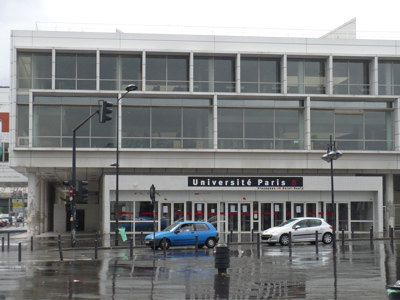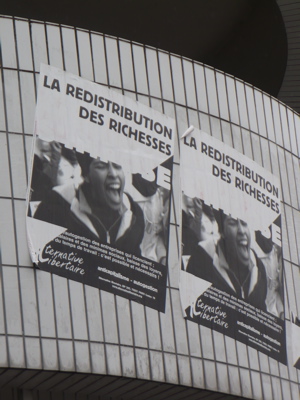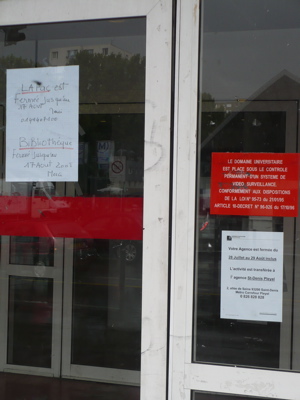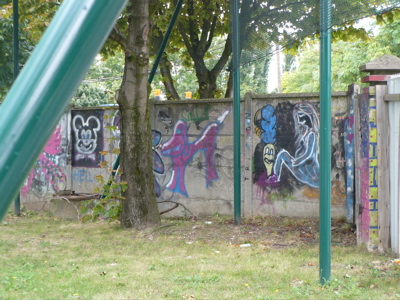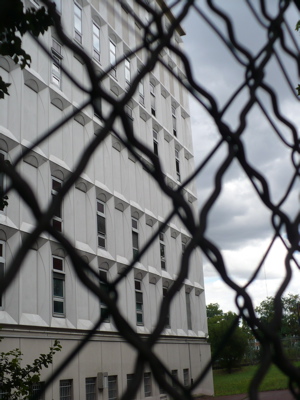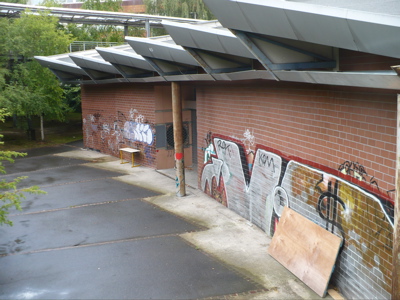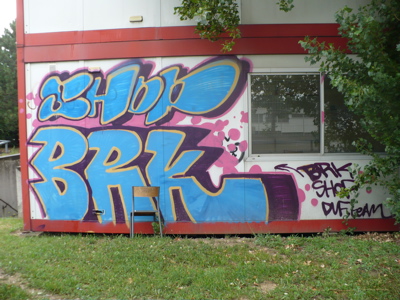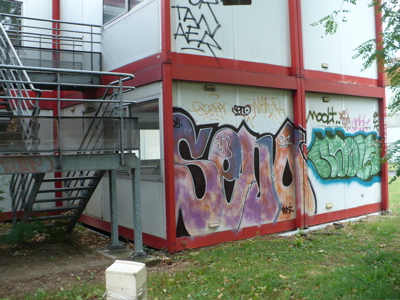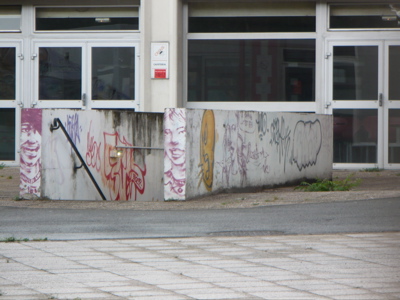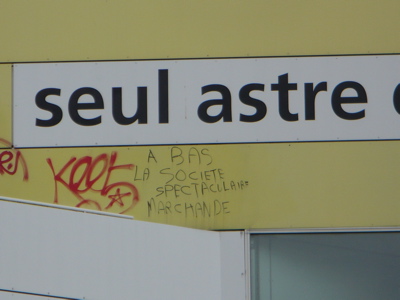I’ve decided to start typing up some of the scenes of everyday life at Paris 8 that made it into my fieldnotes. Here’s one encounter.
It’s the 1st of December, 2009. I’m having coffee with a young man who is my classmate in a class on The Symptom (le symptôme). I think his name is K., but am not sure. He has dark, long hair, a prematurely tired face, a short body, a set of metal crutches and a handicapped leg that dangles.
He is in trouble, he says. He says he doesn’t get what is going on in any of his seven classes. He isn’t sure what he is going to do when midterms come [les partiels].
We talk about the relationship between the department’s pedagogy and its politics. It’s unclear what the relationship is, we agree. But, he adds, one little link [un petit lien] comes in the form of the relations between professors and students. Our teacher in the symptom, for instance, is a lot closer to her students than a traditional teacher would be. But nevertheless: he doesn’t know her name. He doesn’t know any of his professors’ names, he says. He’s only there for the ideas, he says.
K. would leave Paris 8 after that school year, going back to Toulouse where he was from. He had been living in Paris in a cheap apartment, but had never been happy there, hadn’t made a lot of friends, he would tell me, resignedly.
K. was himself a symptom. Of something. His alienation, we might too readily suggest, was the social and subjective product of low status, youth, lack of Parisian social networks, and non-membership in the philosophical nobility, with its characteristic forms of language. He really believed in the intrinsic value of philosophical ideas that Paris-8 offered, but by his own account, couldn’t make sense of them.

